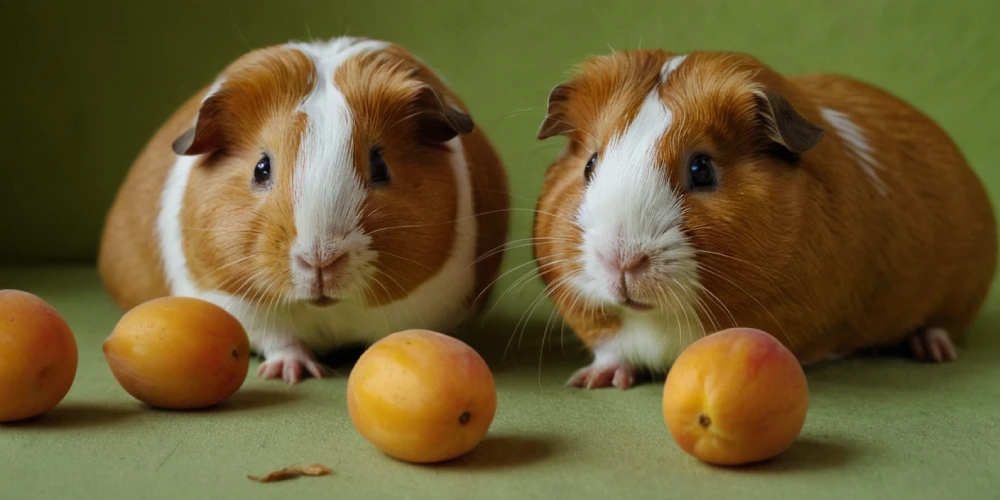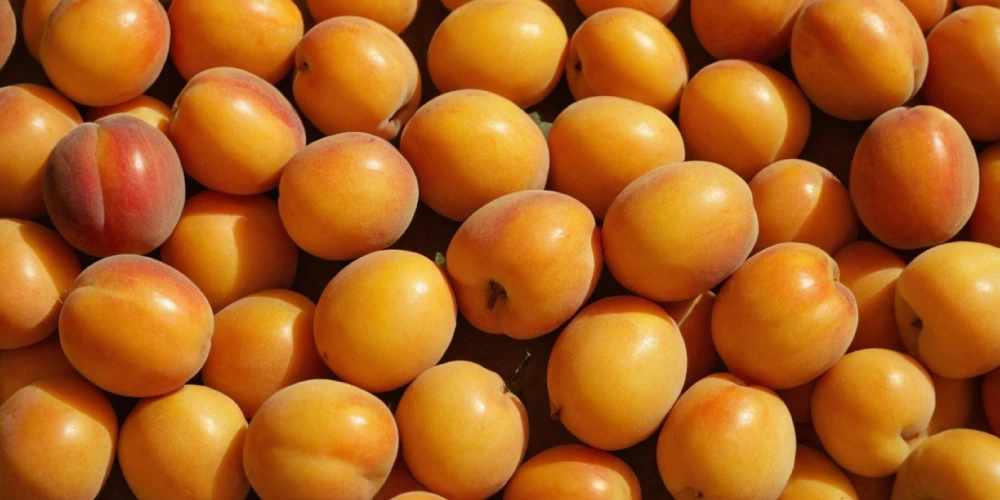
Can Guinea Pigs Eat Apricots?
Guinea pigs are lovable little pets known for their gentle nature and unique dietary needs. Herbivores rely on various fresh fruits and vegetables to stay healthy. But not every fruit is safe for them, and pet owners often wonder about specific options. One common question is whether guinea pigs can eat apricots.
Apricots are sweet, juicy fruits packed with vitamins and minerals, which seem like a healthy treat for guinea pigs. However, offering these fruits to your furry friend requires careful thought. While apricots can be safe in small amounts, they also contain natural sugars that may harm your guinea pig if given too frequently. This article will explore whether guinea pigs can eat apricots, how to prepare them safely, the nutritional benefits and risks, and how they compare to other fruits. Let’s ensure your guinea pig enjoys a healthy and balanced diet.
Are Apricots Safe for Guinea Pigs?
Yes, apricots are safe for guinea pigs when given in moderation. These foods have healthy things, like vitamin C, which guinea pigs need because they can’t make it themselves. However, the high sugar content in apricots can be harmful if consumed too often.
The key is to feed apricots occasionally as a treat. Too much fruit can upset your guinea pig’s digestive system, leading to problems like diarrhea or obesity. Always remove the pit before offering apricots, as it is not only inedible but also a choking hazard. Similarly, make sure the fruit is fresh and free from pesticides or chemicals.
Nutritional Benefits of Apricots
Apricots provide several nutrients that can benefit your guinea pig when fed in small amounts:
- Vitamin C: It helps their immune system and keeps them from getting scurvy.
- Fiber: Supports healthy digestion and prevents constipation.
- Vitamin A: Promotes good vision and overall health.
These nutrients contribute to your guinea pig’s well-being but must be offered as part of a varied diet. Always pair apricots with other fruits and vegetables to meet their nutritional needs.
Risks of Feeding Apricots to Guinea Pigs
Despite their benefits, apricots come with some risks for guinea pigs:
- High Sugar Content: Guinea pigs can’t process large amounts of sugar well, leading to weight gain and other health issues.
- Choking Hazards: The pit of an apricot is hard and dangerous if swallowed.
- Digestive Upset: Overfeeding apricots can cause diarrhea or bloating.
To avoid these risks, always serve apricots in tiny, manageable pieces and limit the frequency to once or twice a week.

How to Prepare Apricots for Guinea Pigs
Proper preparation ensures that apricots are safe for your guinea pig. Follow these steps:
- Wash Thoroughly: Rinse the apricot under running water to remove any dirt or pesticides.
- Remove the Pit: Cut the fruit and discard the hard pit completely.
- Cut into Small Pieces: Slice the apricot into bite-sized portions to prevent choking.
- Serve Fresh: Always offer fresh apricots, as spoiled fruit can make your pet sick.
When you do these things, you’ll be giving your guinea pig a safe and tasty treat.
How Much Apricot Can Guinea Pigs Eat?
Guinea pigs should eat only a small piece of apricot about the size of a fingernail. Due to the high sugar content, even this small amount is enough to satisfy their sweet tooth without causing health problems.
It’s also essential to balance their diet with other foods. The bulk of your guinea pig’s meals should come from hay, fresh vegetables, and guinea pig pellets. Fruits like apricots should only be given occasionally.
Comparing Apricots to Other Fruits
Apricots are just one of many fruits guinea pigs can enjoy. Here’s how they compare to other options:
- Apples: Lower in sugar and provide vitamin C, but the seeds are toxic.
- Bananas are rich in potassium but even higher in sugar, so they should be given sparingly.
- Blueberries are a great treat occasionally because they are low in sugar and full of vitamins.
Each fruit has its pros and cons. By rotating different fruits, you can offer variety while keeping your guinea pig healthy.
How Often Should Guinea Pigs Eat Apricots?
Apricots should be an occasional treat, once or twice a week. Overfeeding can lead to sugar-related issues, so sticking to small portions and limiting frequency is essential.
A good practice is to offer apricots alongside other low-sugar fruits and vegetables. This ensures a balanced intake of nutrients without overwhelming their digestive system.
Signs Your Guinea Pig Likes or Dislikes Apricots
Guinea pigs are expressive and will show whether they like a new food. Signs they enjoy apricots include:
- Eating the pieces eagerly.
- Making happy squeaking noises.
- Looking for more.
On the other hand, signs they dislike apricots might include:
- Ignoring the fruit.
- Pushing it away.
- Showing discomfort after eating it.
Please watch your guinea pig’s reactions and adjust their diet accordingly.
Alternatives to Apricots for Guinea Pigs
If apricots aren’t suitable for your guinea pig, there are plenty of other safe fruits to choose from, such as:
- Strawberries: Low in sugar and rich in vitamin C.
- Melons: Hydrating and mildly sweet but serve without seeds.
- Papaya: Another excellent source of vitamin C, with a unique flavor your guinea pig might enjoy.
These alternatives provide variety and ensure your guinea pig gets the necessary nutrients.
FAQs
1.Can guinea pigs eat dried apricots?
No, dried apricots are not suitable for guinea pigs. They are highly concentrated in sugar, which can lead to obesity and other health problems. Always stick to fresh fruits for your pet.
2.Can baby guinea pigs eat apricots?
It’s best to avoid feeding apricots to baby guinea pigs. Their digestive systems are still developing, and they need a more controlled diet of hay, pellets, and safe vegetables.
3.Can guinea pigs eat apricot leaves?
No, apricot leaves are not safe for guinea pigs. They may contain harmful compounds that can upset your pet’s stomach.
4.What should I do if my guinea pig overeats apricot?
If your guinea pig eats too many apricots, keep an eye on them for abdominal pain or diarrhoea. Make sure they have a lot of fresh water and hay, and if the signs don’t go away, call a vet.
5.Are organic apricots better for guinea pigs?
Organic apricots are a better option as they are pesticide and chemical-free. However, they still need to be washed thoroughly before feeding.
Conclusion
Apricots can be a delightful treat for guinea pigs when offered in small amounts. They have important nutrients like vitamin C and sugar, which should be eaten in moderation. By preparing apricots properly and limiting their frequency, you can safely include them in your guinea pig’s diet. Remember that giving them varied and balanced food is the best way to keep your pet healthy and happy. Always observe your guinea pig’s reaction to new foods and adjust their diet to suit their needs.
